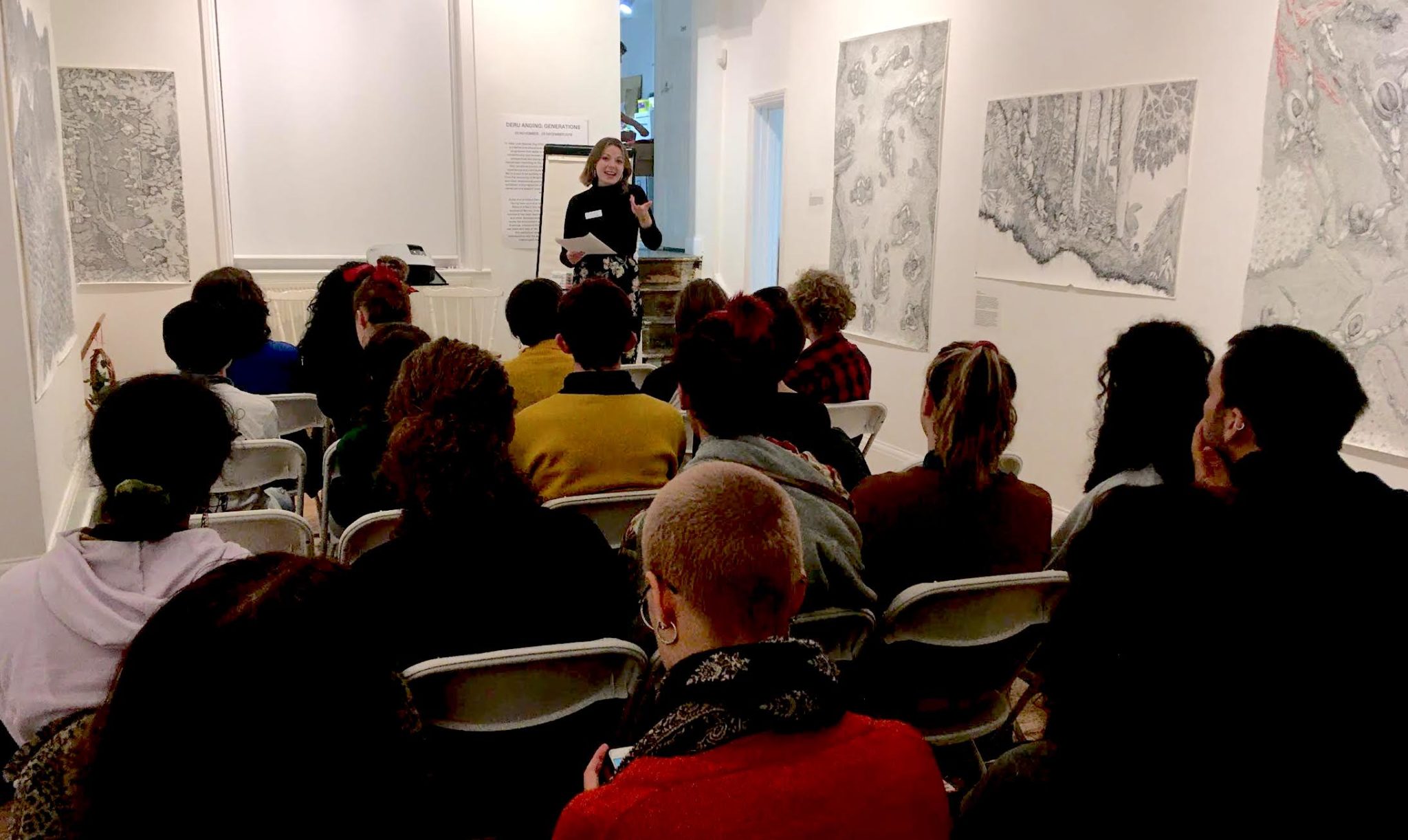Sustainability is not just about saving the environment, it’s about the entire way that power is distributed.
By fighting for universal access to water, food, housing, employment, safety and education, we are fighting for a world based on climate justice, rather than climate destruction and resource inequality.
At the National Union of Students (NUS) we represent seven million students across the UK currently in higher and further education. Our work on sustainability is led by our sister charity, Students Organising for Sustainability (SOS-UK). The NUS and SOS-UK are clear that our sustainability work must treat education as our most valuable tool in our fight for a just transition to a sustainable world.
We want to move sustainability from being a niche subject that relatively few study, to something all students learn about. All students should be “sustainability students.” We want to create cohort after cohort of positive solutions-driven students who go on to make the world a more sustainable place, and shift society from its obsession with short-term profit to a commitment to long-term benefit. We believe that we can do this by getting more students leading on, and learning about, sustainability; embedding sustainability in formal education, from early years to adult learning; and making sustainability more inclusive, for everyone.
Alongside these demands which set out a concrete plan for the future, we have over 10 years of longitudinal research through our Sustainability Skills annual survey, which is under the research section of SOS-UK’s website (sustainability.nus.org.uk). This research demonstrates the long-term student demand for this work. Our data shows that for nine years in a row, around 80% of students have told that they want their institutions to be doing more on sustainability, and around 60% want to learn more about it. It also shows that 80% of those asked would vote for a government that increased action to tackle climate change.
Specifically, on our education work, SOS-UK runs the following programmes and campaigns:
- Responsible Futures which develops a partnership between the institution and SU to implement a whole-institution framework to transform student learning across the formal, informal, and subliminal curriculum.
- For Good which partners students with organisations to complete research, dissertations, projects, and placements with a social or environmental sustainability focus. You can go to forgood.nus.org.uk to sign up, and it’s free to do so.
- And we have Teach the Future, our campaign in partnership with the UK Student Climate Network (UKSCN), with 6 key demands to transform the English education system in response to the climate and ecological crisis. These demands include a government commissioned review into how the whole English formal education system prepares students for the climate emergency and ecological crisis, a national climate emergency grant to fund youth activism, and that all new state-funded educational buildings should be net-zero, with all existing state-funded educational building net-zero by 2030.
There are loads of other great resources to support campaigns within the classroom, like the A to Z guide to sustainability, which suggests and outlines how different disciplines can incorporate sustainability into the curriculum right now, and it includes subjects like maths, dentistry, illustration, religious studies and a whole bunch that you may not usually associate with climate activism.
There’s also the Divest-Invest campaign, which has three key asks to drive the just divestment of universities from fossil fuels. They are:
- Divest-Invest: we want every penny of fossil fuel investments moved into socially-responsible renewables – preferably those that are community-owned.
- No New Dirty Investments: we want commitments from our institutions to never invest in fossil fuels.
- Go 100% Renewable: we want all universities and college to source 100% of electricity from socially-responsible renewable sources.
We focus on fossil fuel companies because they are responsible for the climate crisis. What we need to a system change – for their business models to be shut down and for there to be a just transition to a low-carbon world. ‘Just’ meaning one that does not benefit the privileged few, but everyone, regardless of race, class, gender, disability, citizenship status and/or sexual or gender identity. We are not equally impacted and nor are we equally responsible for the climate crisis. Wherever fossil fuel companies operate, they have pursued a business model based on dispossession and collusion with State violence and repression. It is these companies that are responsible for the loss of lands, lives and livelihoods across the globe, in continuation of colonialism.
The NUS and SOS-UK can offer you campaigns that need you to join, campaign resources that are there for you to use, and ask for feedback on what is still missing, so we can get together with experts (most of whom are already part of the SOS-UK team) to produce more, come and visit you on campus and offer whatever help we can. The work that we do is so important: our organising, the connections we make with each other and skills we learn as we go are part of the legacy that we leave for other students, and a way to ensure that both we and our planet have a chance of survival.
Get Involved
ONCA was proud to host Claire Sosienski at our first student climate networking event – part of our 2019 Generations programme with Youth Strike 4 Climate Brighton. You can find out more about NUS and SOS-UK at the Students Organising for Sustainability UK website.
—
Share on Twitter /
Share on Facebook
Posted on January 6, 2020
Categories: Education for Sustainability
Tags: Claire Sosienski, Generations, NUS, Students
→ Introducing our new web accessibility plugin!
← Artists in Residence: Subira Joy & Wandia Nduku
